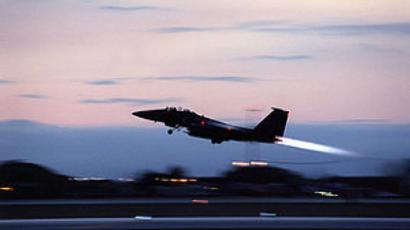Russia and NATO: no longer at loggerheads?
After a long break, Russia and NATO have decided to resume cooperation, with hopes for the improvement of their relations high ahead of Barack Obama's visit to Moscow.
The “make-up” comes after a period of NATO coldness towards Moscow after last year’s Georgia-South Ossetia conflict. Seemingly, that all is forgotten now as NATO reassesses where its priorities lie.
Russia has long been wary of NATO’s expansion eastward – but concern intensified over Georgia’s membership ambitions when it launched an attack on South Ossetia last August.
“We don't want any illusions of partnership when we're being surrounded by military bases along our borders, and more and more countries are being dragged into NATO. We certainly don't like it,” President Medvedev said.
Georgia may have been on NATO's mind last year – but some say, not now.
“I think that the Obama administration has put the issue of NATO membership for Georgia on ice,” believes Charles Kupchan, a senior fellow for the US Council on Foreign Relations.
With a new US President, new hopes for change have come – and perhaps for “yes we can” diplomacy.
“It is important for NATO allies to engage Russia, and to recognize that they have legitimate interests. In some cases we have common interests, but we also have some core disagreements. We have to send a very clear message to Russia that we want to work with them, but that we can't go back to the old ways of doing business,” said US president Barack Obama.
And although neither side is likely to change their position, they might be able to move on.
“There are no signs that either side is willing to radically revise their position. The only way to overcome these problems is to forget about them and work on those spheres where they can cooperate,” says Nikolay Petrov, political analyst form the Carnegie Moscow center.
Obama has said that one day Georgia could very well become part of NATO – but after the conflict over South Ossetia and a year of serious internal political protests, it doesn’t look like the NATO red carpet will be rolled out anytime soon for the Caucasus country.
“I don’t think the Obama administration has fallen off the idea of one day getting Georgia into NATO, but I don’t think it will be pushing on that door,” Charles Kupchan said.
For now, the US is knocking on another door and even if the US and Russia can’t resolve all their differences over NATO right now, there’s plenty more they can work on – like the impact of the global financial crisis and reducing their arsenals of nuclear weapons.













